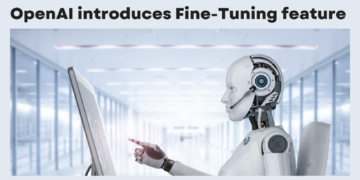Infosys, a leading software major, recently introduced its new offering, Topaz, combining data analytics, Artificial Intelligence (AI), and generative AI. The unveiling of Topaz highlights the increasing significance of AI in today’s rapidly evolving technological landscape. With a focus on enhancing efficiency, productivity, and future growth, Infosys aims to leverage its experiences with AI experimentation to curate client solutions. This move comes when demand for technology is slowing down in major markets such as the US and Europe.
The Importance of Generative AI
Generative AI is considered a breakthrough technology that has the potential to transform businesses and increase productivity. Open AI and Google introduced ChatGPT an Google Bard recently to compete with each other in the Generative AI space. Infosys, along with other IT firms, recognizes the competitive intensity in this space and is working towards industrializing solutions to common challenges. The CEO of Cognizant, Ravi Kumar S, emphasized the transformative power of generative AI for clients’ businesses. At the same time, Tata Consultancy Services plans to establish a center of excellence around this technology. Generative AI can accelerate the adoption of innovative technologies, propelling enterprises to the forefront of innovation.
Topaz: Client Interest and Pricing
Infosys is already engaged in generative AI work with existing clients and has over 300 ongoing client conversations. Recognizing the massive opportunity generative AI presents, the company has decided to invest in this space. While Infosys previously donated to OpenAI, it does not have a stake in the company. However, the company can leverage OpenAI’s offerings, which align with the solutions Infosys has been building internally. Pricing for generative AI solutions will likely be premium due to their value, and Infosys expects a significant revenue impact over time as experimentation continues and clarity emerges.
Use Cases and Concerns of Topaz
According to Infosys, generative AI has already demonstrated three established use cases: enabling new solutions and business models driven by ecosystems, enhancing business processes by infusing intelligence, and empowering and boosting the productivity of employees. However, generative AI is not without its challenges. The company must address concerns about hallucinations, safety, and information security. Infosys highlights the importance of curated data quality, explainability, traceability, and human involvement to mitigate these concerns effectively.
Implications for Jobs and Workforce
While there has been speculation about generative AI making specific jobs redundant, Infosys believes the immediate impact on employment will be limited. Previous technological advancements have shown that new technologies often lead to solving higher-order problems, thereby transforming job roles. Infosys anticipates a shift towards jobs that require design thinking and reimagining processes. The consulting industry is also expected to undergo democratization as knowledge becomes more accessible. Learning and acquiring new skills will ensure employees remain productive and adaptable in the evolving landscape.



























